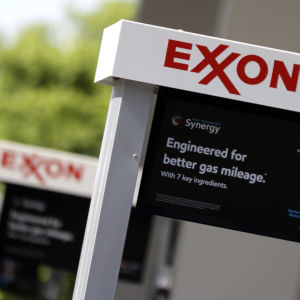Call it a bait and switch. Roughly two months ago, Boulder, Colorado made headlines when it announced that it was suing ExxonMobil and SunCor over the impacts of climate change. Following in the footsteps of cities in New York and California which had filed similar suits, Boulder became the first in a landlocked state to do so. However, it wasn’t until this week when the city formally served the defendants with the charges, a necessary first step for the process to proceed.
Now the city is amending its original complaint to emphasize that it was the manufacture and marketing of fossil fuels, rather than their use, which led to global warming. This distinction was a key critique of the original charges, since, as opponents pointed out, ExxonMobil and SunCor were energy companies not the end energy users.
“The costs should be shared by Exxon and the SunCor defendants because they knowingly caused and contributed to the alteration of the climate by producing, promoting, refining, marketing, and selling fossil fuels at levels that cause and continue to cause climate change…,” the suit now reads.
Previously, the suit had argued that the companies had only produced, promoted and sold fossil fuels. The change in language is likely an attempt to avoid the argument that the companies only sold fuels and that the harm of global warming was caused by their combustion by later end users.
More strange is what the suit has added, namely a complaint that the companies’ business dealings in Colorado amounted to conspiracy.
“Exxon and the Exxon co-conspirators jointly targeted their fossil fuel activities at the State of Colorado, including through the co-conspirators based in, doing business in and/or incorporated in Colorado,” the complaint alleges.
This new charge alleges that the defendants and their co-conspirators had “a meeting of the minds” to accomplish their goal of maintaining and increasing fossil fuel use above levels that would alter the climate. According to the suit, the energy companies accomplished this by “misrepresentations, false representations, concealment and omissions.”
How this differs from general advertising was not described in the suit.
The filing has reignited a contentious issue for Boulder. Since the lawsuit was first announced, it has received a chilly reception in Colorado. At a Democratic gubernatorial debate in May, all four candidates refused to back the lawsuit. Conservation Colorado, the state’s leading environmental group, has also declined to endorse the lawsuit, which has meanwhile gained the ire of the state’s energy industry and the Denver Post editorial page.
“Boulder’s lawsuit will do nothing to solve climate change and could ultimately come at a great cost to their taxpayers, while the oil and natural gas industry supports well over 200,000 thousand jobs in the state and contributes over $30 billion a year to Colorado’s economy. Natural gas has also played an important role in reducing emissions,” says Spencer Walrath, research director at Energy In Depth, a pro-energy public information group.
At the end of the day, the main winner in the case may be the law firm representing the city. While co-plaintiffs Boulder and Boulder County, and San Miguel County are represented pro bono by EarthRights International, a nonprofit environmental legal advocacy group based in Washington, D.C, the EarthRights attorneys are not licensed to practice in Colorado. As a result, the group partnered with the Hannon Law Firm of Denver, a deal which would net Hannon 20 percent of the gross amount of any damages.
If the city does not win its suit, though, taxpayers could find themselves footing a hefty legal bill. Taxpayers could face court-imposed payment of defendants’ legal fees and penalties for the filing of a frivolous lawsuit. In a case that could last years, those amounts could be substantial.

